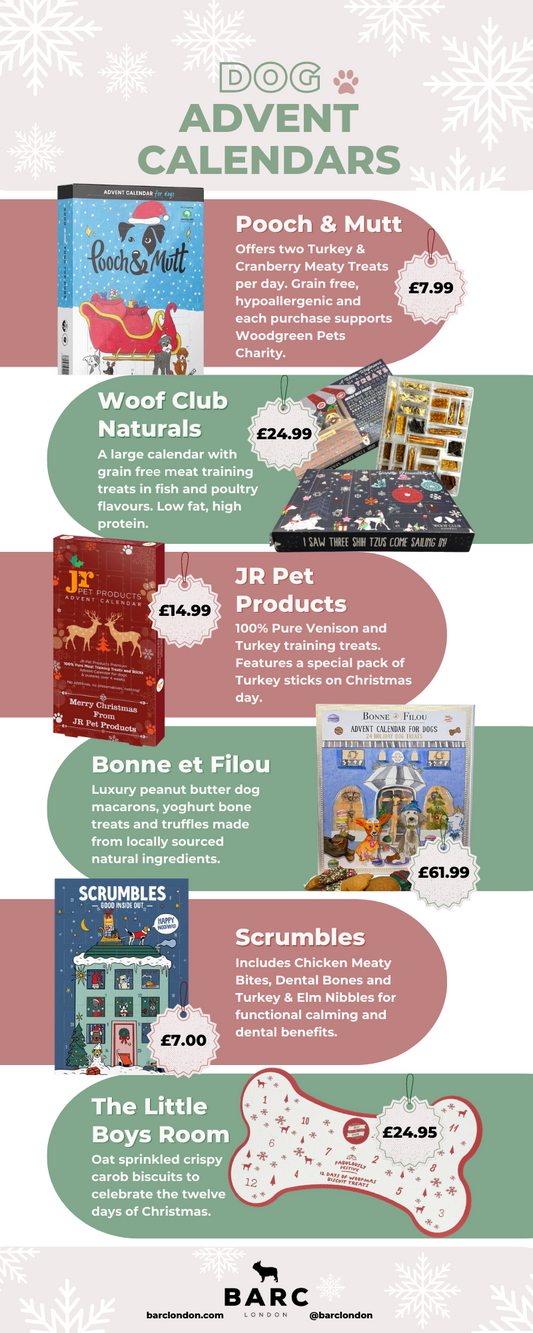As your dog gets older and starts to approach the senior years, you’ll begin to notice certain behavioural changes that tend to be common with this stage of their life.
Having gone through the energetic puppy years, adolescence and adulthood - the senior years tend to be when dogs start to slow down.
You may find your dog has less energy and appetite than they did previously. It's also likely you'll notice changes in their mobility and immune system.
Most of the time, these changes shouldn't be a cause for concern, but it's still important to know what to expect, and ensure you are ready to provide them with the best quality of life possible - which includes prioritising their diet for optimal health and wellbeing.
- How old are senior dogs?
- What kind of food is best for senior dogs?
- The healthiest senior dog foods:
- Is wet or dry food better for senior dogs?
- Obesity in senior dogs
- How to switch to senior food

How old are senior dogs?
There are four stages of a dog’s life, with the senior years making up the fourth and final stage.
Generally speaking, dogs become senior citizens around the age of 7 - 10 years. However, this depends on the breed and size of the dog, as larger dogs tend to become ‘senior’ at an earlier age than smaller ones.
💡 Top Tip: If you’re not sure whether or not your dog is in its senior stage of life, you can use a dog age calculator to find out.
What kind of food is best for senior dogs?
When searching for the best dog food for senior dogs, there are a few things you need to consider. The healthiest dog food for older dogs will be:
- Easily digestible
- Rich in nutrients
These two factors are important because they help to ensure that even with a decreased appetite, your dog will be getting the maximum nutrition possible whenever he or she eats.
If you have already been feeding your dog a healthy diet that contains a high meat percentage, then you won’t necessarily need to make the switch to senior dog food.
However, as your dog moves into the golden years, you should monitor their behaviour and appetite and adjust their food accordingly. You'll want to choose a food that supports their joints, immune system and helps them maintain a healthy weight.
Share this Image On Your Site
Please include attribution to https://www.barclondon.com/ with this graphic.
What is the healthiest dog food for senior dogs?
The healthiest dog food for senior dogs will contain the correct amount of nutrients required for their age group.
When searching for healthy dog food, it’s important to refer to the ingredients listed and ensure you’re buying from a reputable brand that has been registered and authorised by the Food Standards Agency (FSA) and Animal and Plant Health Agency (APHA).
We also recommend using nutrition platforms that provide helpful nutrition ratings and break down exactly what your dog’s food includes.
5 healthy senior dog foods (UK):
| Food | Type | Age | Nutrition Rating* | Price Per Day |
| Luna & Me Superblends Senior's Club | Raw food | 7 years - old age | 99% | £1.86 |
| Nutrient Senior | Raw food | 7 years - old age | 97% | £1.20 |
| Edgard & Cooper Senior Tins | Wet food | 8 years - old age | 96% | £3.76 |
| Orijen Senior | Dry extruded food | 7 years - old age | 95% | £0.99 |
| Natural Instinct Senior | Raw food | 7 years - old age | 93% | £1.16 |
* Nutrition rating has been calculated by All About Dog Food. The score takes into consideration the quality and quantity of stated ingredients, additives and processing methods used.
Is wet or dry dog food better for senior dogs?
Dog nutritionists tend to recommend wet food for senior dogs. This is because older dogs can find it harder to chew, swallow and break down food, so wet food can encourage a healthy appetite and digestion, while also benefitting a dog’s oral health.
As well as this, wet food is known to contain more meat protein than dry food. Because dogs bodies are less efficient at synthesising protein in their older years, it's vital to make sure they get a high enough protein intake.
💡 Top Tip: It’s important to brush your dog’s teeth regularly to prevent gum problems as they reach the senior stage of their life.
Obesity in senior dogs:
A recent study by the Royal Veterinary College (UK) found that 1 in 14 dogs are recorded by vets as overweight each year in the UK.
Their report shows that senior dogs aged 6 - 9 years of age have the highest risk of overweight status compared to dogs under the age of three years old.
The primary reasons for dog obesity (which have also been found to be a common cause of premature death in senior dogs), are down to factors including:
- Decreased physical activity
- Behavioural changes
- Lower energy levels
- Changes in sex hormones
Just like us humans, as dogs get older their metabolism slows down and the aren't able to process fats as quickly - increasing the risk of obesity.
The RVC recommends dog owners to monitor their dogs and contact a vet as soon as they start to notice any changes in their dog's appetite, weight and energy levels.
By keeping your vet informed, they will be able to recommend any necessary adjustments to your dog's food, nutrition or exercise requirements - all of which can prevent potential illness from occurring in old age.

How to switch to senior dog food:
By the time your dog reaches the senior years, it's likely they'll be used to eating the same thing every day. Any abrupt switches in their diet can cause confusion and stomach upset, so if you decide to make the transition to senior dog food, you must do so gradually.
- When making the switch, feed your dog as normal and replace a small portion (25 - 30%) of your dog's old food with the new food you plan to move on to.
- Day by day, increase the amount of new food and monitor your dog closely for any adverse side effects of a diet change like vomiting, nausea, diarrhoea.
📚 Knowledge: Vets and dog nutritionists remind owners not to be in a hurry with the switch. The slower you take it, the higher the chances are that your dog will transition to their new food with ease.



